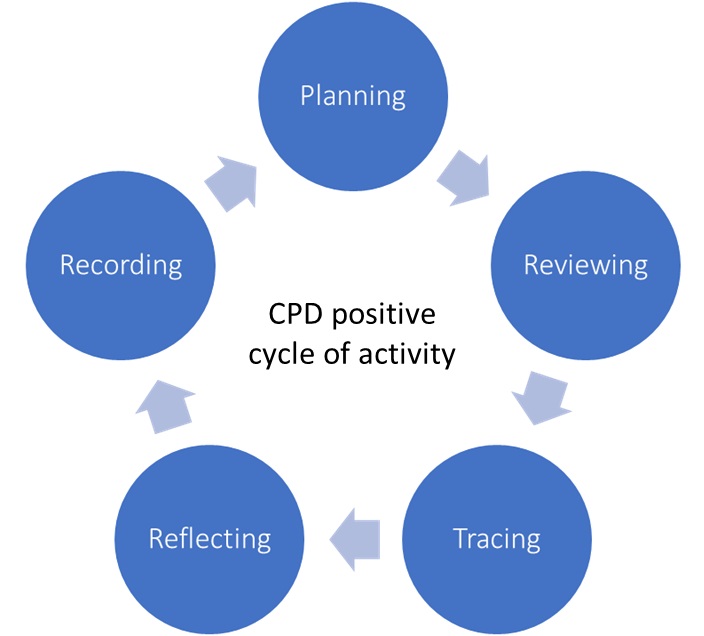Mind the Gap! – Assessing and Addressing your Development Needs
23 September 2024
When it comes to planning for a successful academic career, the usefulness of understanding what you don’t know, or what you can’t yet do, should never be underestimated!
In a previous blog (Managing your Research Career), we discussed how career management frameworks, such as GROW, can aid you in comparing the knowledge and skills you’ll need to achieve future career GOALS with those you possess now in your current REALITY, thus helping you reveal any gaps that might exist. Known as a ‘Training Needs Analysis’ (TNA) or a ‘Development Needs Analysis’ (DNA), this activity will allow you to identify your OPTIONS for development so that you can plug those gaps and plan a WAY-FORWARD to career progression.
As a researcher at Cardiff looking towards an academic career, you should be aware of the expectations placed on both your current role and on the future roles to which you aspire, within the academic context outlined in The Cardiff Academic and associated College Performance Expectations. These expectations, along with the criteria for our Academic Promotions Scheme, can support your career development by providing you with a clear indication of the level at which you should be operating at each stage of the academic career ladder and the activities which are commensurate with each of those roles. Having this information will help you set the goals you’ll need so that you can either work towards developing within your current role to maximise your performance, or prepare for your next role by building your track record and ensuring you can meet all the necessary competency benchmarks when the time comes.
How to plug the gaps…
So, what do you do if your TNA/DNA does reveal gaps in your knowledge and skillset? Well firstly, don’t panic! Everybody has them! Remember that you are at an early stage in your career and nobody expects you to know everything. You should, however, be pro-active in addressing any gaps you identify, particularly those that are important for you to do your current role. You can do this effectively by engaging with Continuing Professional Development, or CPD.
CPD is defined as the intentional maintenance and development of the knowledge and skills needed to perform in a professional context. This might mean honing the knowledge and skills you already possess in order to improve your performance, developing your current knowledge and skills to a new level to help prepare you for an expanded role or possible promotion, or acquiring completely new knowledge and skills ready for a change in role (whether that’s within academia or in a different sector entirely).
The CPD you undertake should be strategic rather than ad hoc. It can be very easy to sign up for just anything, especially if you’ve been in post for a long time and you feel you’ve already done everything relevant on offer (and if that’s the case for you, in the next blog we’ll look at what actually constitutes ‘development’ so that you can be more creative with what you undertake). As mentioned in a previous blog, aim for activity with a purpose when it comes to CPD. That isn’t to say you can’t be responsive to sudden need, opportunity, or curiosity if you wish, just make sure that you prioritise time for the ‘must haves’ if your resources are restricted.
Seeking advice and feedback from trusted sources, such as your line manager or a mentor, will help you get started on and/or keep you on track with your CPD journey. They can make sure your assessment of your knowledge and skills is accurate, your aspirations are realistic and achievable, and that you stay focused on your goal. And of course, you can also seek guidance from the Researcher Development team on what development opportunities are available to you, so get in touch if you need to!
Planning your CPD

Your CPD should be primarily self-directed, and your CPD plan should be bespoke and specific for you and your situation. When planning your CPD, make sure you include a mechanism for review so that you can trace your progress through your plan and ensure it remains relevant and fit-for-purpose with regards to your changing needs. Importantly, always include time for reflection after engaging with CPD (What did you learn? How can you apply it? Has it revealed any other gaps?), and keep a written record of all CPD and the learning you take away from it. It’s surprising how quickly we can lose track of what we’ve done!
Cardiff University has a number of resources and frameworks in place to assist with your CPD planning, in addition to wealth of external resources that are also available to you.
Internal resources and frameworks to help you plan your CPD
- Career Directions for Researchers – This resource has been created to provide a range of interactive and engaging career learning resources for Cardiff University’s Early Career Researchers, both students and staff.
- Cardiff University’s Student Futures+ has some excellent resources for career planning, skills assessment, and CVs and interviews. These pages are tailored for students but contain useful information that will be relevant for researchers and academics also. Just bear in mind that some of the resources and services are not accessible by staff (e.g. careers advisory service).
- Academic Staff Mentoring Programme – The mentoring programme for academic staff is for those who are looking to focus on career and/or personal development. You can put yourself forward as a mentor, a mentee, or both! The scheme usually puts out a call in the Autumn so keep an eye out on Viva Engage and Blas for more information.
- Performance Development Review (PDR) – Your PDR is a more formal opportunity for you to reflect on your contribution and development in the last 12 months, on your role within your team and department, and to look forward to the coming year. The PDR meeting should be part of ongoing conversations, and your reviewer will encourage you to share your thoughts on performance against objectives set, as well as any areas for improvement that could be developed. For information on how to get the best out of PDR, visit our intranet page.
External resources to help you plan your CPD
If you would like more detailed help with identifying your needs and planning your development, it may be worth exploring the following:
- Prosper – Prosper is a new approach to career development that unlocks postdocs’ potential to thrive in multiple career pathways. Their ultimate goal is to open up the huge talent pool that exists within the postdoctoral research community, to the benefit of postdocs themselves, managers of researchers and principal investigators, employers, and the wider UK economy.
- Vitae’s more comprehensive online course on professional development planning (PDP) for researchers. This course, which is free of charge to Vitae members (Cardiff University has institutional membership but you will need to set up your own free account), comprises 5 modules and can be done at your own pace.
- Vitae Researcher Development Framework (RDF) – Describes the knowledge, behaviour, and attributes of successful researchers. It is a comprehensive resource and can be used as part of a light-touch review or studied in detail. Vitae uses the RDF as the reference point for all their career support and they have in place a range of resources to help you understand and reflect upon your values, motivations, learning styles, and skills.
- The University of Cambridge’s Reflective Practice Toolkit offers a practical guide to thinking more reflectively about your work and may offer a useful aid to continuous learning.
Final Word
As a signatory to the Concordat to Support the Career Development of Researchers Cardiff University is committed to ensuring research staff engage in a minimum of 10 days’ CPD, pro rata, each year. We, as an institution, have committed to providing opportunities, structured support, encouragement, and time for research staff to engage in CPD, while managers of research staff will support researchers to balance the delivery of their research and their own professional development. This might sound like a lot, so in the next blog we’ll look at CPD options a little more closely and hopefully provide some inspiration as to what opportunities you can consider taking advantage of!
- From Ignite to PlaceNET: Creating Spaces for Collaboration
- Navigating Research Careers with the Vitae Researcher Development Framework 2025
- Welsh Crucible and me – Dr Hayley Reed (2024)
- The Researcher Community Showcase: Co-creating research with user communities and interdisciplinary colleagues – Dr Rachel Hale
- The Researcher Community Showcase: From the Third Sector to Academia: My career journey as a participatory researcher – Dr Hayley Trowbridge